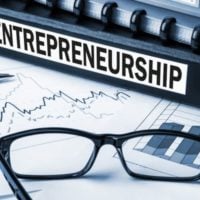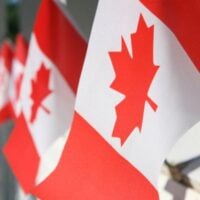Deadline: 3-May-23
The ASEAN Foundation, with the support of TikTok and SAP, launches the ASEAN Social Enterprises Development Program (ASEAN-SEDP) 2.0 to solve socioeconomic problems and to strengthen the ASEAN Social enterprises ecosystem through comprehensive and sustainable support.
This program aims to provide customized capacity building, mentorship and coaching, facilitation to market, and seed funding to youth-led social enterprises in ASEAN.
This programme offers a glimpse into the region’s diverse social enterprises, which has the potential to create a more significant social impact on the community in the region. The initiative of creating a Social Enterprises Development Program in the Southeast Asia region will bring long-term benefits and build a unique ecosystem for the larger social enterprise community in the region.
This programme will provide social enterprises in the ASEAN region with access to more significant opportunities to improve their ventures through
- Promoting productivity, technology and innovation;
- Increasing access to finance;
- Enhancing market access and internationalization; and
- Promoting entrepreneurship and human capital development.
Objective
- The ASEAN Foundation with the support of TikTok and SAP will be implementing the ASEAN Social Enterprise Development Programme (ASEAN-SEDP) with the following objectives:
- To empower youth-led social enterprises through product refinement, business model improvement, and mentoring.
- To increase investor access to sources of funding for participating youth-led social enterprises.
- To improve the social impacts produced by participating social enterprises.
- To engage ASEAN youth-led social enterprises in the national and regional policy-making processes with the key stakeholders.
- To contribute to one or more than one of the United Nations – Sustainable Goals (UN – SDGs).
Challenge
- The implementation of ASEAN-SEDP 2.0 is to continue supports youth-led social enterprises in ASEAN region through capacity building, mentorship and coaching, facilitation to market and seed funding. Also, this programme will help the social enterprises to prepare a solid exit strategy to help them get investors to sustain their impact.
- The ASEAN Foundation, with the support of TikTok and SAP, are inviting social enterprises from the 10 ASEAN Member States (AMS) with innovative projects that touch upon on the following issues to apply for the ASEAN-SEDP 2.0:
- Reducing poverty or improving the livelihood of ASEAN citizens through job creation, employment- related capacity building initiatives, sustainable agricultural practices, and/or access to financial resources – SDG 1: No Poverty
- Reducing hunger, promoting food security and improved nutrition, promoting sustainable agriculture – SDG 2: Zero Hunger
- Providing access to better health care for ASEAN citizens, particularly disadvantaged communities
- SDG 3: Good Health and Well-Being
- Providing or improving access to quality education/capacity development programmes for ASEAN citizens, particularly disadvantaged communities (marginalized groups, women, people living in slum or rural areas, people with disability, ) – SDG 4: Quality Education
- Addressing issues on gender equality in the ASEAN region – SDG 5: Gender Equality
- Promoting sustainable management of water and sanitation – SDG 6: Clean Water and Sanitation
- Promoting access to affordable, reliable, sustainable, and modern energy – SDG 7: Affordable and Clean Energy
- Promoting sustained, inclusive, and sustainable economic growth by helping the poor through social business ventures – SDG 8: Decent Work and Economic Growth
- Building resilient infrastructure, promoting inclusive and sustainable industrialization and foster innovation – SDG 9: Industry, Innovation, and Infrastructure
- Reducing inequalities within the ASEAN region with the inclusion of disabled persons and the person with special skill, by ensuring that no one is left behind – SDG 10: Reduced Inequalities
- Promoting an inclusive, safe, resilient, and sustainable city, including human settlement, transport system, green and public spaces. Safeguarding world’s cultural and natural heritage – SDG 11: Sustainable Cities and Communities
- Addressing environmental issues related to the irresponsible exploration the nature – SDG 12: Responsible Consumption and Production
- Undertaking necessary actions to tackle climate change and its impacts – SDG 13: Climate Action
- Addressing water conservation and sustainable use of ocean, sea, marine resources – SDG 14: Life Below Water
- Addressing the issue of sustainable use of terrestrial ecosystems and forest, land degradation, biodiversity loss – SDG 15: Life on Land
- Promoting peaceful and inclusive societies, providing access to justice and accountable institutions – SDG 16: Peace, Justice, and Strong Institutions
- Addressing the issue of partnerships to support the achievement of SDGs – SDG 17: Partnerships for the Goals
Benefits of the Programme
- Curriculum Development
- A tailor-made curriculum will be developed for the SEs; this curriculum will also leverage the ASEAN MSME platform.
- Capacity Building
- The ASEAN Foundation team will design an exclusive expert-led training program and The SEs will receive a comprehensive program to build capacity, up-skilling, and detailed orientation.
- Regular Pitching and Speed Pitching for Investors
- The ASEAN Foundation team will facilitate networking and speed-pitching for SEs to pitch their ideas to potential investors.
- Engage the SEs with the National and Regional ASEAN Policymakers
- The SEs able to participate in ASEAN sectoral bodies such as ACCMSME and SOMY officials to showcase their impacts and recommendation.
- Visibility and Opportunities
- The SEs will present their project initiatives and product and win the seed grants to accelerate growth of their project.
Eligibility Criteria and Qualification
- Social enterprises from ASEAN countries who are implementing projects and creating products challenges related to the SDGs with the following qualifications are eligible to apply:
- The Founder or Co-Founder of the project or the Social Enterprises team members are aged between 15 to 35 years old who ASEAN Nationalities.
- All team members must be currently residing in the following ASEAN countries: Brunei Darussalam, Cambodia, Indonesia, Lao PDR, Malaysia, Myanmar, the Philippines, Singapore, Thailand, and Vietnam.
- If selected, the project leader and 2-3 members must be fully committed to participating in the full cycle of the ASEAN SEDP 2.0
- The youth-led social enterprises registered to this programme should already generate some revenue. It would be preferable if the social enterprise has a minimum viable product that can be examined and presented. The Social Enterprises that already supported ideation phase from others existing incubator programmes also can apply to this programme.
- Some team members must have good English as the programme will be in
Assessment and Criteria
- Social Impact: An Analysis of the social impact
- Does the project address one of the specified issues of the SDGs goal?
- Will the project bring any social impact/outcome?
- How does the project bring social impacts to the targeted population?
- Beneficiary and Market: Particular groups of the population to support and reach out
- Does the project target and support specific groups of people?
- Does the project particularly try to reach out to the following disadvantaged groups of people: the underserved communities, people with disabilities, and women. People living in slum areas, people living in remote areas, people with certain ethnic group, people with certain gender identities, or people with lack access to economic opportunities
- Who will benefit from this idea?
- What is the value to the end customers/beneficiaries?
- Resources: An assessment of the teams and necessary
- Does the social enterprise comprise team members with different ASEAN nationalities?
- How many team members are available?
- Does the social enterprise have additional resources which can support the operations and implementation of the project?
- Creativity, Innovation, & Feasibility: A demonstration that the idea is unique and can be successfully
- Does the project present an innovative and genuine approach and method of executing the project?
- Is the project highly likely to be implemented effectively?
- Sustainability: Long-term prospects for viability and
- Does it consider the different dimensions of financial and social sustainability in a conscientious manner
- What resources (people, funds, permissions) would they need to try the idea out?
- What partnerships are in place for sustainability?
- Scalability: Potential to scale up to the regional level
- Is there a potential for significant social impact and engagement of the broader community?
- Collaboration: Prospective collaboration that the team might explore to support their project for their sustainability
- Can the team specify stakeholders from the government, grassroot organizations, and local communities which can support them for their project sustainability?
For more information, visit ASEAN Foundation.









































